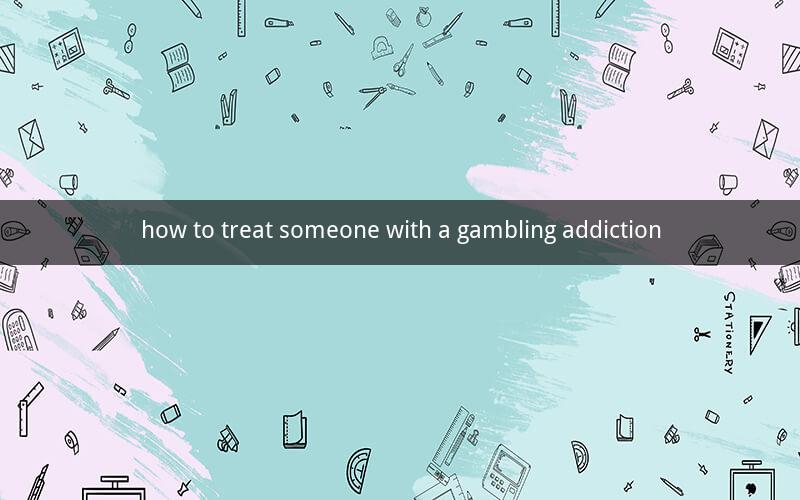
Table of Contents
1. Understanding Gambling Addiction
2. Recognizing the Signs of a Gambling Problem
3. The Importance of Support
4. Encouraging Professional Help
5. Communication Strategies
6. Setting Boundaries
7. Providing a Safe Environment
8. Encouraging Alternative Activities
9. Managing Financial Consequences
10. The Role of the Family
1. Understanding Gambling Addiction
Gambling addiction, also known as gambling disorder, is a chronic, progressive condition characterized by an inability to control or stop gambling despite harmful consequences. It is crucial to understand that addiction is a mental health disorder and requires treatment and support to overcome.
2. Recognizing the Signs of a Gambling Problem
Identifying the signs of a gambling problem is the first step in helping someone with an addiction. Common signs include:
- Secretive behavior
- Financial difficulties
- Missing work or school
- Increased stress levels
- Changes in mood or personality
3. The Importance of Support
Support is essential for someone struggling with a gambling addiction. Encouraging them to seek help from friends, family, or support groups can make a significant difference. Here are some ways to provide support:
- Listen actively
- Avoid judgment
- Encourage them to seek professional help
- Attend support groups together
4. Encouraging Professional Help
Professional help is crucial for overcoming a gambling addiction. Therapists, counselors, and support groups can provide tailored treatment plans to meet the individual's needs. Here are some treatment options:
- Cognitive-behavioral therapy (CBT)
- Dialectical behavior therapy (DBT)
- Support groups
5. Communication Strategies
Effective communication is key to helping someone with a gambling addiction. Here are some strategies:
- Use "I" statements instead of "you" statements to avoid confrontation
- Avoid being confrontational or accusatory
- Be patient and understanding
6. Setting Boundaries
Setting boundaries can help prevent the individual from engaging in harmful gambling behavior. Here are some ways to set boundaries:
- Limit access to gambling websites or apps
- Monitor financial activity
- Encourage alternative activities
7. Providing a Safe Environment
Creating a safe environment is essential for someone struggling with a gambling addiction. Here are some ways to provide a supportive environment:
- Avoid enabling behavior, such as lending money or covering up their problems
- Encourage them to seek professional help
- Offer emotional support
8. Encouraging Alternative Activities
Encouraging the individual to engage in alternative activities can help reduce the urge to gamble. Here are some suggestions:
- Join a sports team or club
- Volunteer in the community
- Take up a new hobby
9. Managing Financial Consequences
Managing the financial consequences of gambling addiction is essential for recovery. Here are some ways to address financial issues:
- Work with a financial counselor
- Develop a budget
- Seek legal advice if necessary
10. The Role of the Family
Families play a vital role in the recovery process. Here are some ways to support the individual and yourself:
- Attend support groups for family members
- Seek individual counseling if needed
- Focus on self-care
10 Questions and Answers
1. Question: Can someone with a gambling addiction recover?
Answer: Yes, with proper treatment and support, individuals with a gambling addiction can recover.
2. Question: Is it my fault if my loved one has a gambling addiction?
Answer: No, addiction is a mental health disorder, and it is not the fault of the individual or their family.
3. Question: Can I help my loved one recover on my own?
Answer: While you can provide support, it is crucial to encourage your loved one to seek professional help.
4. Question: How can I tell if someone has a gambling problem?
Answer: Look for signs such as secretive behavior, financial difficulties, and changes in mood or personality.
5. Question: What are the consequences of gambling addiction?
Answer: Consequences may include financial difficulties, relationship problems, and legal issues.
6. Question: Is there a support group for individuals with gambling addiction?
Answer: Yes, there are several support groups available, such as Gamblers Anonymous and Gam-Anon.
7. Question: Can therapy help someone with a gambling addiction?
Answer: Yes, therapy, such as cognitive-behavioral therapy, can be effective in treating gambling addiction.
8. Question: How can I support my loved one through treatment?
Answer: Listen actively, be patient, and encourage them to attend support groups and therapy sessions.
9. Question: Is there a medication for gambling addiction?
Answer: There is no medication specifically for gambling addiction, but medications may be used to treat underlying mental health issues.
10. Question: Can I help prevent my loved one from relapsing?
Answer: Yes, by providing ongoing support, encouraging alternative activities, and setting boundaries, you can help prevent relapse.